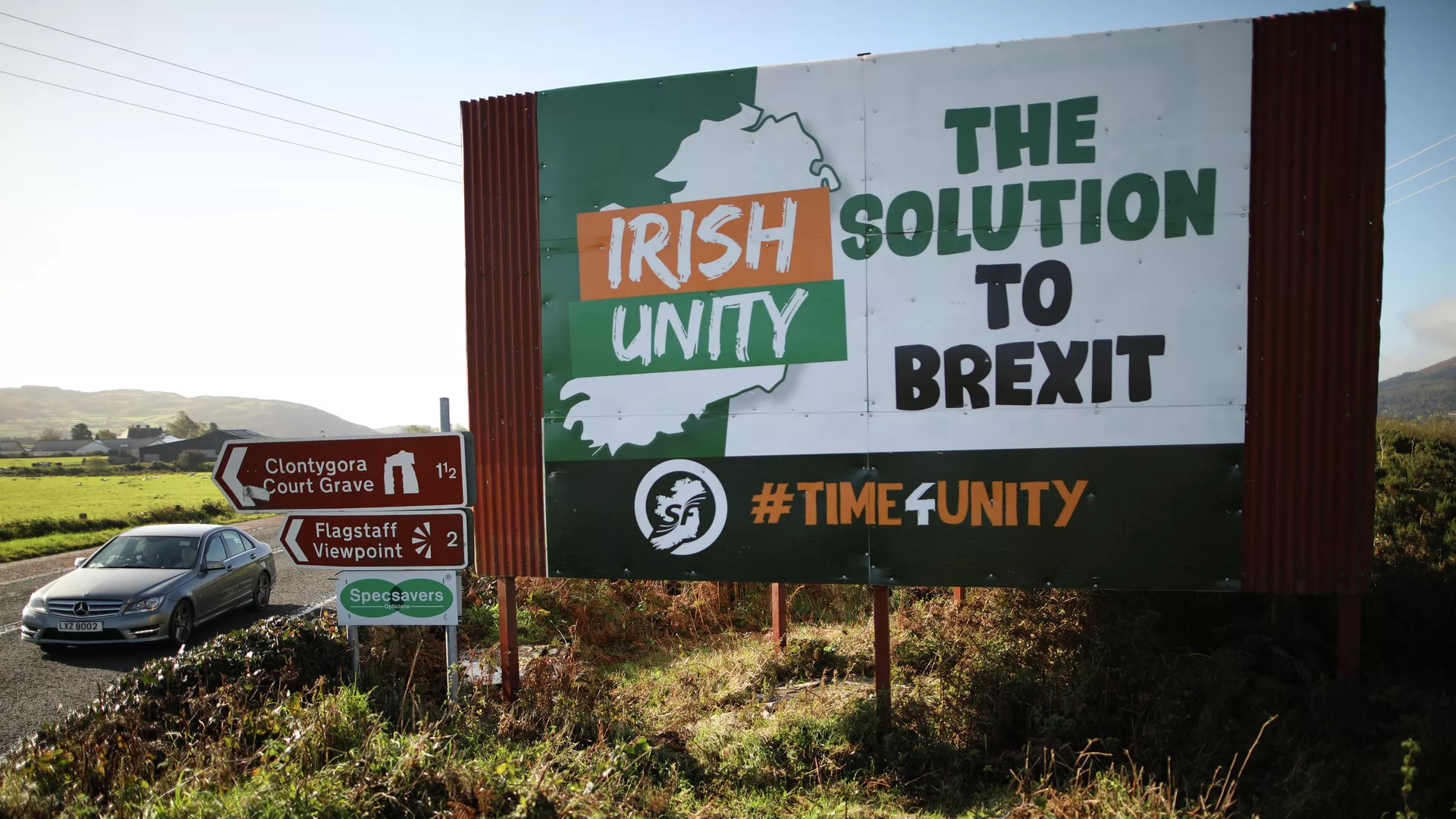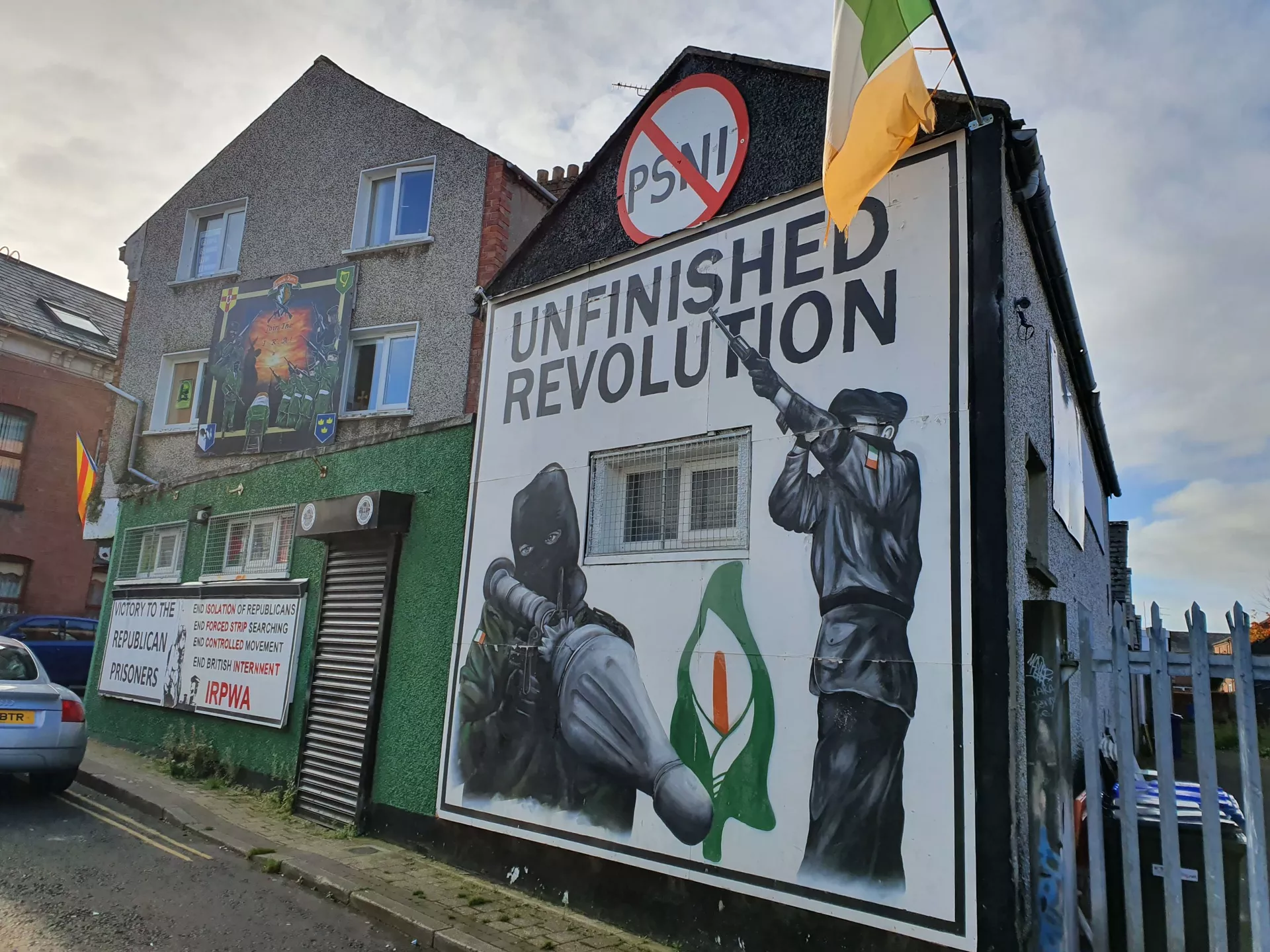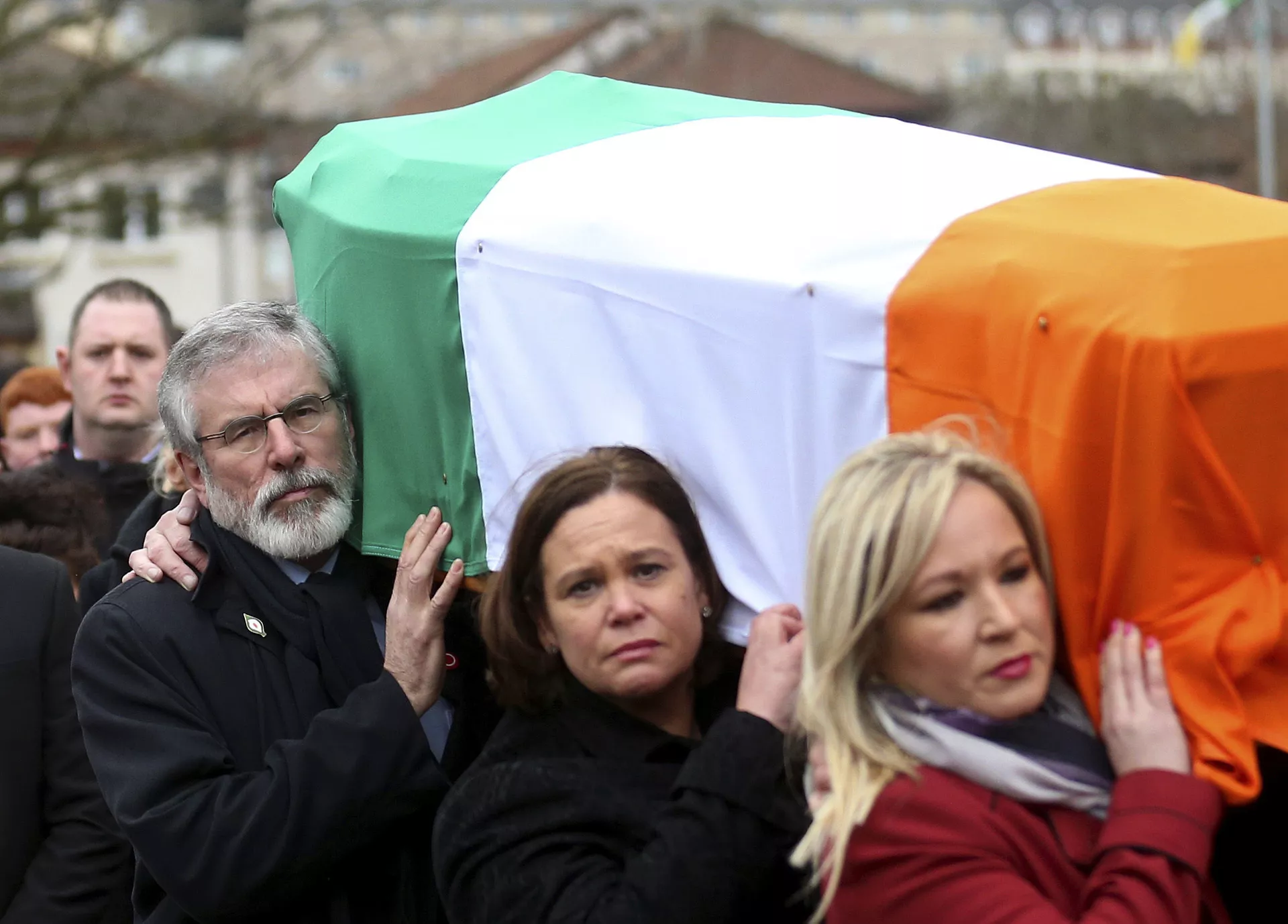Could Brexit Unite Ireland Quicker Than All Those Years of Violence and Terrorism?
16:20 GMT 09.11.2021 (Updated: 12:14 GMT 01.03.2022)

© AP Photo / Peter Morrison
Subscribe
Fresh negotiations are underway between Britain and the European Union over the controversial Northern Ireland Protocol. But how do Irish republicans and nationalists view the future of the island of Ireland in the aftermath of Brexit?
When the Good Friday Agreement was signed in 1998 it brought to an end 30 years of violence which cost 3,600 lives.
But for the Roman Catholic nationalist and republican community in the six counties of Northern Ireland it was never supposed to be the end of the story.
They still aspire to a united Ireland - a single state, with its capital in Dublin - as envisaged by the original Sinn Fein and the leaders of the Easter Rising in 1916.
Is This Peace or Just 'Absence of Conflict'?
Paul Gosling, a journalist and author who works as an adviser to SDLP MLA Sinéad McLaughlin, said: “Since the Good Friday Agreement we have had an absence of conflict, rather than a settled peace.”

A mural outside the Saoradh office in Derry
© Sputnik / Chris Summers
The Provisional IRA - the military wing of Sinn Fein - has largely abided by the terms of the Good Friday Agreement and decommissioned its weapons, as have the two loyalist paramilitaries, the Ulster Defence Association (UDA) and the Ulster Volunteer Force (UVF).
Dissident Irish republican groups still exist - the New IRA claimed responsibility for killing journalist and blogger Lyra McKee in Derry in 2019 and also reportedly lent AK-47 rifles to Dublin gangster Gerry “The Monk” Hutch when he was embroiled in an underworld feud with rival Daniel Kinahan.
Gosling said the Democratic Unionist Party (DUP), under leader Sir Jeffrey Donaldson and First Minister Paul Givan, and Sinn Fein under Deputy First Minister Michelle O’Neill were not working together, adding: “There is hostility at the political level and a level of dysfunctionality.”
The Importance of Personalities
Ironically power-sharing at Stormont worked when Sinn Fein was led by former IRA commander Martin McGuinness and the DUP by the Reverend Ian Paisley, who were dubbed the Chuckle Brothers because of their working relationship.

Michelle O'Neill carries Martin McGuinness's coffin
© AP Photo / Peter Morrison
Gosling said: “Personalities reflect their experience. Ian Paisley had personal experience of The Troubles and Donaldson and Givan don’t and Michelle O’Neill doesn’t have Martin McGuinness’s experience.”
He said: “There are people people in Sinn Fein who believe the failure of the institutions in Northern Ireland will support the case for a united Ireland.”
Sinn Fein Now Focused on Dublin
But Sinn Fein came close to winning power in the Republic at last year’s general election - they gained 15 seats and ended up with one less than Fianna Fail and two more than Fine Gael - and Gosling says the party’s strategy has shifted.
“Sinn Fein is in with a possible chance of gaining power in the south so it doesn’t want anything in the north that affects its political chances in the south. So the south is now more important than the north,” assessed Mr Gosling.
Earlier this year, Martina Anderson, 59, a former IRA member who was convicted in 1986 for conspiring to cause explosions in England, was forced to stand down as an MLA in Derry and was replaced by Pádraig Delargy, 25, and Ciara Ferguson, 50, who have clean résumés.
Gosling said: “Sinn Fein are cleaning their image in the north. They believe taking power in the south is the way to achieve Irish unity.”
Governments in Dublin have effected significant changes in recent years with Citizens’ Assemblies. Sinn Fein still wants to bring about a united Ireland.
Under the Good Friday Agreement a united Ireland would only come about with the consent of the majority both in Northern Ireland and in the Republic.
A United Ireland Referendum Soon?
Border polls - effectively referendums on a united Ireland - would have to be held in Northern Ireland and the Republic.
If one were held now it is difficult to know which side would win, although the fiasco of Brexit and the fudged compromise which is the Northern Ireland Protocol have probably increased support for a united Ireland.
🎥WATCH: Infrastructure minister @NicholaMallon says “thugs” who hijacked and burnt out buses “will not win”. She says the long term solution is political leadership & called on politicians to call out the attacks @SDLPlive pic.twitter.com/DHl9VsOk1Z
— Downtown News (@newsondowntown) November 9, 2021
When Brexit was negotiated with the EU by Boris Johnson’s government in 2019 a compromise - known as the Northern Ireland Protocol - was put in place which placed the whole island of Ireland in the single market and introduced a customs border in the Irish Sea.
The Problem With the Protocol
The Protocol has led some firms in Northern Ireland to switch suppliers from companies in England, Scotland or Wales to businesses in the Republic of Ireland.
The Brexit Secretary, Lord Frost, has asked for the protocol to be renegotiated amid widespread protests among both the unionist and loyalist community in Northern Ireland.
Mr Gosling, who is based in Derry, said: “I didn’t anticipate the level of dishonesty by the British government. Boris Johnson has been willing to sign an international agreement and then renege on it.”
He said: “There is a lot of support for the Northern Ireland Protocol among the business community here. Access to the single market is very good for businesses in Northern Ireland.”
But loyalists have been enraged by the Northern Ireland Protocol, which has introduced an obstacle to trade between Ulster and the British mainland.
Loyalist paramilitaries, using the UVF cover name Protestant Action Force, have hijacked and set fire to buses in protest at the Northern Ireland Protocol.
We are going forward indeed, forward to the destruction of the violence rewarding, Union wrecking Protocol. https://t.co/E55r7bMPhN
— Jamie Bryson (@JamieBrysonCPNI) November 9, 2021
In October 2019 a former Irish republican paramilitary, who served time for possessing petrol bombs, told Sputnik: “The loyalist paramilitaries will start killing Catholics if a united Ireland ever looks likely…When their backs are against the wall they always carry out sectarian killings.”
Loyalist Threat to Good Free Agreement
This week the Progressive Unionist Party, which was originally set up as the political wing of the UVF, withdrew its support for the Good Friday Agreement.
PUP leader Billy Hutchison said: “I will continue to work constructively with leaders of all other unionist parties, and key stakeholders within the unionist family, to secure the removal of the intolerable and constitutionally damaging (Northern Ireland) Protocol.”
Gosling said: “Northern Ireland is a difficult and dark place at the moment. When 12-year-olds and 15-year-olds are rioting you can be sure they have been coerced by loyalist paramilitaries.”
But he said most Irish republicans were not in favour of violence and would resist provocation by the loyalist side.
For Sinn Fein - and other supporters of a united Ireland in the north - it would appear the strategy is to bide their time, win political power and bring about a “managed process” which will eventually bring down the curtain on an entity - Northern Ireland - which came in 1921, exactly 100 years ago.


